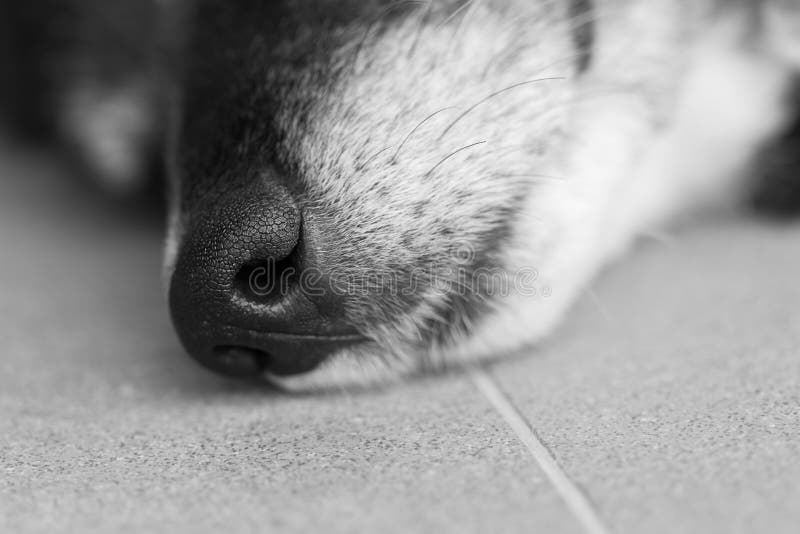Understanding and Managing Dog Skin Sensitivity: Expert Tips

The best analogy in explaining Dog sensitive skin is to think of your canine as getting brindled, but this time with some discomfort.
You see your dog scratching endlessly, howling uncontrollably, licking its paws, and seeing patches of dried skin appear on their fur, these signs point to one thing: dog sensitivity skin.
Many factors account for your canine’s skin sensitivity; for some, it is a genetic disposition; for others, allergies trigger the sensitivity, and the list is endless. Nonetheless, we will walk you through all that you need to know about dog sensitivity skin; let’s get started.
What Causes a Dog Sensitivity Skin?
As stated earlier, a lot of factors predispose your canine to be skin sensitive, and knowing which factor causes a reaction helps you properly ascertain the proper treatment for your dog. These factors include:
- Genetics
- Parasitic Infections
- Allergies
- Environment
- Diet etc.
Genetics
Certain breeds of canines are more predisposed to dog sensitivity skin than others; dog species from the Arctic and cold regions tend to exhibit more signs of irritation than others.
Dogs genetically inclined to sensitivity tend to have excessive oily skin with some scaly undertone.
There is very little to do when the primary cause of your dog’s sensitive skin is genetic; however,
ensuring good grooming helps manage the condition.
Parasitic Infection
As a pet lover, you see a stray pet needing help and decide to adopt it; over time, you notice that your pet incessantly scratches; chances are that the pet has picked an infection.
In cases when you realize your adopted dog feels uncomfortable and begins to show rashes and patch-like features on their skin, ears, and legs, it is advised to see a vet.
Parasites like Fleas, yeast, and ticks buried under your canine’s skin cause them to scratch, chew, and lick on their paws consistently; in this case, the best option is treatment.

Allergies.
In the same way, humans react to certain allergies, our dogs are no exception; little wonder why you see them making a fuss whenever they are near the allergens.
Some dogs react to dust, pollen grains, and even grasses when around them; this causes them discomfort, which manifests in the itching of the paws and other obvious parts of their bodies.
When next you decide to go for a picnic, be sure to check with your dog if they are not predisposed to any allergies.
Environment
An over-crowded, noisy, and smelly environment can be a dog’s turn-off; when this happens, your dog becomes restless.
A dog’s sense of smell is acute and can pick up over a thousand different types of scents; when your canine picks up an unpleasant smell, it manifests in an excessive licking of its nose and pawing of its face.
In addition, while dogs are social creatures, not all canines are; some, like the Beagle species, are solitary, which means a slight disturbance could trigger them.
Diet
Mustard seeds, Chocolate, Lime, etc., are toxic to dogs, and not only does this cause a skin reaction, but it also causes gastrointestinal problems.
Gluten products containing a heavy amount of starch can cause embolism in your canine, making them roll from side to side to ease the discomfort they feel.
Your dog’s diet should consist of starch-free nutrients and more lean meat and whey protein; this helps improve your dog’s health and agility.
If your canines show traits of hair loss, dry patch skin, and extreme itching, and you are miles away from the vet, some home remedies could help restore your best friend to good health.
Dog Sensitive Skin Home Remedies
Home remedies are not just cost-effective; they are also ideal if you want to track the specific cause of their skin sensitivity.
You won’t want to buy a skin grooming product for your pet if the underlying cause of their skin sensitivity is genetic, would you? To this end, I have put together some home remedies you should try to improve your dog’s sensitive skin.
Proper Grooming
Grooming your dog is crucial for them, especially when the skin sensitivity is genetically induced.
Common practices like brushing their coat and applying dog’s friendly disinfectant and shampoo in grooming them will keep their skin less oily and greasy.
Blow Drying Your Dog’s Feet
A fun-filled day outside should be met with a regular check-up; your canine might have picked up pollens and other strange materials that could cause an allergy without it knowing; it is your duty as its owner to check that out.
Blow-drying your dog’s feet ensures that these foreign bodies don’t walk with them into the house, thus preventing any form of itch.
Vitamin E
Treat your canine with an ample dose of Vitamin E if a parasitic infection causes skin sensitivity; applying after bathing them and before you go to bed will heal the patches and give their coat a glow.
That’s all for some home remedies you could try for your dog’s sensitive skin; how about some food your canine can and cannot eat? Want to know more, read on:
Dog Sensitive Skin Food
Foods with high fatty and starch composition should not be fed to your dogs; feeding them starch will cause constipation.
Poor cooked Meat, Dairy Products, some plant-based proteins, and wheat should be avoided in a dog’s diet.
On the other hand, if properly cooked, A mixture of pork, sweet potatoes, potatoes, cauliflowers, and green peas is ideal for your dog.
In addition, brown rice, carrots, spinach, ground turkeys, and eggs contain healthy nutrients necessary for building their bones and promoting growth (especially among pups).
Dog Breed with Dog-Sensitive Skin
All species of dogs are susceptible to having sensitivity on their skin. However, it is more pronounced in some than others; below are some breeds likely prone to sensitive skin than other canine species:
- Golden Retriever
- Labrador
- Irish-setter
- Pug
- Lhasa
- Apso
- Dalmatians
- Poodle etc.
To Wrap Up
Your dog needs utmost care, and leaving their grooming, diet, and general health to fate only worsens their skin sensitivity. This article has highlighted everything you need to know about dog sensitivity skin, and we hope you take the necessary action to forestall a health challenge.
If you find this article informative, do well to leave a comment and check out other related articles below:





